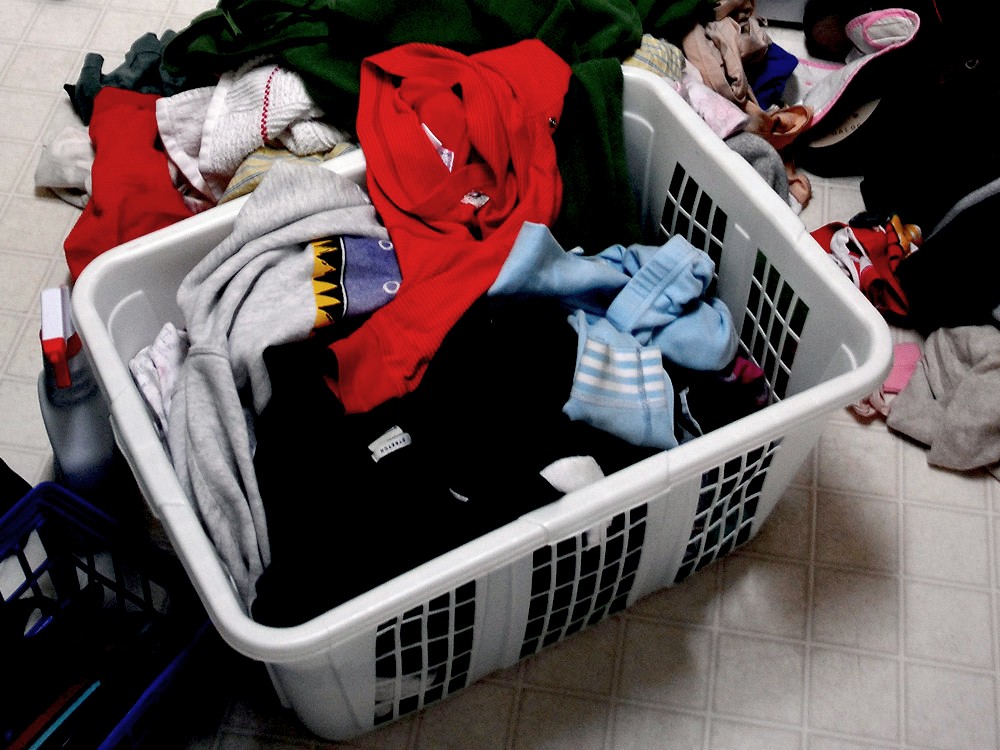Armed with bags of linens, Val Anderson-Webb joined about 15 other union in-home care providers last month as they stormed into the Spokane offices of Home and Community Services, occupying it for about an hour before she and two others chose to be arrested by police.
The 46-year-old now faces a first-degree trespassing charge, which could carries up to a year in prison and a $5,000 fine. But Anderson-Webb says it’s worth it to protest a Department of Social and Health Services order that cuts the time allotted to caregivers to do housebound Medicaid patients’ laundry.
“If I get some jail time out of this, maybe people will understand what’s really going on,” she says.
Anderson-Webb takes care of two housebound patients. Since neither of them has a laundry facility on-site, she normally takes their clothes and linens to a laundromat on her own time. The department used to pay her for that extra time. Now they want her to make those laundromat trips during her regular work hours. But how, she wonders, will she be able to squeeze that in?
“It takes more time to go do laundry outside your facility, but we’re still supposed to,” she says. “It’s like a double standard.”
It’s the latest wave of strife for the beleaguered DSHS, which has had to resort to emergency actions to avoid running out of money in the wake of a state Supreme Court decision last year that changed how it allocated its money.
Meanwhile, Anderson-Webb’s union, Service Employees International Union Local 775, is suing DSHS over the cuts. The union argues that the cut should have been collectively bargained, and that it puts patients’ health at risk. The lawsuit will be heard today.
“Dirty laundry, with someone with an illness, can be lethal,” union spokesman Benton Strong says. “I mean, it’s incredibly dangerous.”
Dan Murphy, director of legislative and policy analysis with the Aging and Disability Services Administration, which oversees the program, says the move will save about $1.2 million.
The department has its hands tied, says Murphy, because they have to abide by the state Supreme Court’s May ruling in Samantha A. v. DSHS, which ordered the department to allocate more money to caring for disabled children.
“To comply with the court order … would have required a request for an increase in appropriation at a time when programs are being reduced and cut to respond to the deficit,” says Murphy.
So rather than request that money be taken away from another department, Murphy says DSHS opted to cut from within using an emergency rule — a temporary, unilateral move that can be issued in the event of a budgetary crisis.
That does not sit well with the service employees union.
“There are no hearings, so DSHS doesn’t get to hear the effects of these cuts, which are extremely detrimental to people,” Strong says.
Until it is resolved, Murphy says in-home care workers can work out with their clients how their remaining hours will be spent and try to fit laundry into those hours.
“The clients determine what task to focus on,” Murphy says. “They also have other resources that may be able to help them: family, friends.”




















